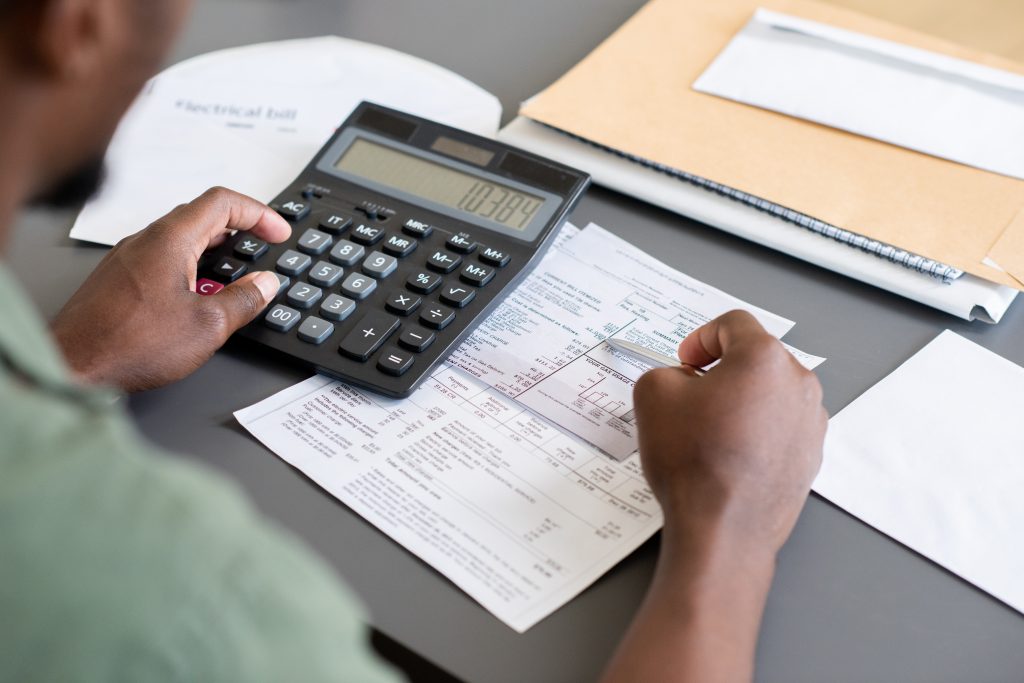
Taking care of your own money is important for long-term safety and financial protection. However, a lot of people have trouble handling their money well because personal finance is complicated and they don’t understand some important factors. People may have trouble with debt, unexpected costs, and not being able to reach their financial goals if they don’t know how to handle their money properly. To get through these problems and become financially secure, you need to have a strong understanding of personal finance.
People can get back in charge of their finances, save for the future, pay off bills, and build an emergency fund by learning good money management skills and putting them into action. This piece will talk about five important tips for handling personal earnings that will help people become financially stable and successful in the long run.
1. Emergency Fund
An emergency fund is an important part of handling your personal finances because it protects you against unexpected costs. Life is full of shocks, and having extra money saved up can keep you from having to go through hard times when you need it most.
The goal of an emergency fund is to save enough money to cover costs for three to six months. This includes your rent or mortgage, gas, food, car payments, and any other important bills. With this cushion, you won’t have to go into debt or spend all your funds if you lose your job, have a medical emergency, or need big car repairs.
Making regular payments is important if you want to build up your backup fund. Think of these fees as regular costs that you can’t avoid, like any other bill. You can set up regular payments from your paycheck or bank account to a different savings account that you will only use for emergencies.
You’ll have peace of mind and financial security if you regularly add to your emergency fund. Start with a small amount, even if it’s just a few dollars a week, and add more as time goes on. Don’t forget that the more you save, the better off you’ll be in case something bad happens.
Make your emergency fund a must-have part of your financial plan and give it top priority. In doing so, you’ll be taking a big step toward becoming financially stable and strong. Start saving for an emergency fund right away so you don’t have to deal with sudden costs.

2. Financial Goals
Setting and choosing financial goals is an important part of managing your own money. You can make these goals short- or long-term, and they will help you figure out how to handle your money.
Long-term financial goals are ones that you need to plan for and save for a long time. Some examples are putting money away for retirement, buying a house, or paying for your child’s schooling. By setting long-term goals, you can be sure that you have a plan for your financial future.
When it comes to money, short-term goals are smaller steps that you can take soon. This could mean setting aside money for a disaster, getting rid of credit card debt, or planning a trip. These goals will keep you going and help you stick to your general budget plan.
Setting priorities for your financial goals is important to make sure you use your resources well. Think about which goals are most important to you and make sure they fit with your values and way of life. This way, you can put your time and money into doing what really means to you.
To properly handle your personal funds, you should make a financial plan based on these objectives. This plan shows how you will make money, spend it, and save it. You can make smart choices about your money and keep track of your progress toward your goals if you have a clear plan.
3. Credit Cards and Credit Scores
Credit cards and credit scores are important parts of handling your own money. Lenders use your credit score, which is a number that shows how creditworthy you are, to decide if they want to give you money. How carefully you use your credit cards can have a good or bad effect on your credit score.
It is very important to check your credit report often to make sure it is correct and to spot any signs of scam. To keep your credit score high, you need to pay your bills on time every month. If you miss or pay late on payments, it can hurt your credit score and make it harder for you to get loans or credit cards in the future.
Build a long credit past and don’t use too much of your available credit to raise your credit score. A long credit past shows that you can responsibly handle credit, and using less than 30% of your available credit shows lenders that you can do this without getting too far in debt.
There are many reasons to raise your credit score. It lets you get loans and credit cards with better terms and lower interest rates. Your chances of getting a mortgage or renting agreement can also go up if your credit score is better. You can build a strong financial base for the future by taking charge of your credit cards and credit score.
4. Extra Money and Unexpected Expenses
Having a plan for how to handle extra money and unexpected costs is an important part of controlling your own money.
It’s important to fight the urge to spend all of your extra money, whether it’s from a present, a tax return, or something else that came up out of the blue. Instead, you might want to put some of it toward your cash goals. It could mean getting rid of debt, saving for a house down payment, or putting money into your retirement account. You can make big steps toward long-term financial success by being smart about how you spend your extra cash.
Making an emergency fund is also a good way to be ready for costs that come up out of the blue. An emergency fund is a savings account that is set aside to pay for unexpected costs like hospital bills, car repairs, or home repairs. A safety net for hard times is to have three to six months’ worth of costs saved in an emergency fund, according to experts.
Making a budget and saving extra money are also important ways to deal with surprise costs. By making a weekly budget and keeping track of your spending, you can find ways to save money that you can then put toward your emergency fund. If you do this, you’ll have the money on hand for any unplanned costs, and you won’t have to use credit cards or loans.
5. Retirement Planning
Planning for retirement is an important part of handling your own money. You can start planning for retirement at any time, no matter what age or income you are. At different points in your life, here are some important steps to take:
Start Early: It’s best to start saving for retirement early. Start saving money when you are in your 20s or 30s to take advantage of compound interest, which makes your money grow very quickly over time.
Find Out About Retirement Accounts: Learn about the different kinds of retirement accounts, like IRAs, 401(k), and 403(b). These accounts offer tax benefits, like growth that isn’t taxed right away or tax-free payments when you leave.
Save a Certain Amount of Your pay: To be financially stable in retirement, you should save at least 10 to 15 percent of your pay. Change this number based on how much money you make and what your financial goals are. Saving a regular amount of your cash will help you build up a big retirement fund.
Employer payments: If your company offers a retirement savings plan with equal payments, put in as much as you can to get the most out of it. This is pretty much free money that you can use to save for retirement.
Think about a Roth IRA. If you are qualified, you can put money into a Roth IRA in addition to the retirement plan your workplace offers. When you make payments, the money goes into your account after taxes. When you leave, the money comes out tax-free, which can help your finances in the long run.
Do not forget that planning for retirement is a long process, not a quick one. You can build a strong base for a comfortable retirement by starting early, learning about retirement accounts, setting aside a portion of your salary, getting the most out of company payments, and thinking about the pros and cons of a Roth IRA.

Conclusion
In conclusion, following these five important tips for handling your personal finances can help you become financially stable and safe. By starting early and learning about retirement funds, you can take advantage of tax breaks and interest that builds on itself, which will help your money grow a lot over time. Saving a certain amount of your salary each month, with changes made based on your income and financial goals, is a good way to build a big retirement fund. Employer donations are like getting money for free to put toward retirement. Finally, a Roth IRA can help you save on taxes in different ways and may even help you in the long run. If you follow these tips and learn how to handle your money well, you will have a much better chance of reaching your financial goals and having a safe future.







